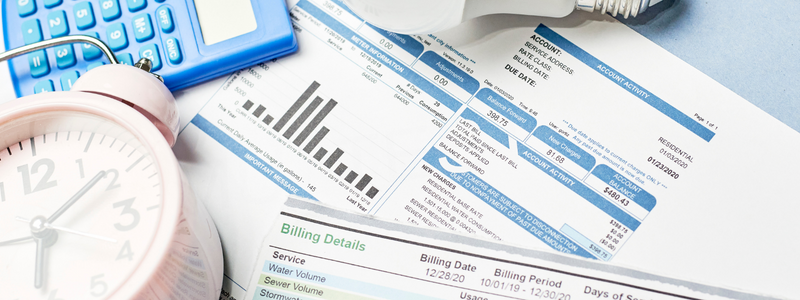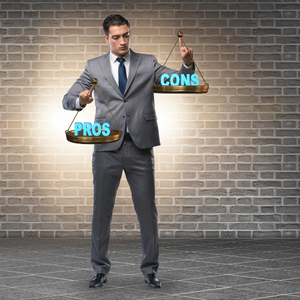
Paying your utility bill is important for more than just keeping the lights on. And a disconnected phone is not the only consequence of failing to pay your cell phone bill. Many monthly payments, such as cable, energy and cell phone bills, don’t directly factor into your credit score. However, they can if you fall significantly behind on their payments. If any of your utility bill payments are sent to collections, it can have a serious negative impact on your credit score.
When Utility Bills Do and Do Not Impact Your Credit Score
Generally speaking, companies that provide a service do not report payments to credit bureaus. However, falling significantly behind on your payments will lead to being disconnected, and likely sent to collections. This likely won’t happen until you are three or four months behind. When an account goes to collections, it is reflected on your credit score, and not in a good way.
Unfortunately, the inverse is not true. You may have been a loyal subscriber to your cable network for 10 years and never missed a payment. But chances are good your service provider isn’t reporting you to the credit bureau for outstanding bill-pay habits. Because unlike a loan or credit card, paying for utilities does not involve borrowing money and paying it back.
There Are Exceptions to This Rule
Other than being sent to collections, your monthly utility payments can influence your credit score, and in a positive way. FICO, the most widely used credit scoring model, offers another lesser-known model called the FICO XD 2. The FICO XD 2, introduced in 2018, takes into account non-traditional payment data, such as utility payments and medical bills. This newer model is meant to help individuals who haven’t established credit through traditional means do so through monthly expenses. Some factors FICO XD 2 takes into consideration include utility bills, rent payments, cell phone bills and medical bills.
Consumers can also choose to have their credit reports reflect their utility payments thanks to Experian Boost. Experian, one of three major credit bureaus, can now access consumers’ utility, cable and telecom payment histories with permission. When a person signs up for this program, his or her credit score will see an instant boost. Whether or not the positive trend will continue all depends on the timeliness of future payments.
Experian Boost Tracks Only Positive Payment History
Though Experian Boost will not help if you don’t make bill payments on time, late payments won’t hurt you either. Experian Boost does not keep track of those. It will, however, remove an account if it notices you have not made a payment in more than three months. The removal of those accounts is just as detrimental to your score as if you were to close a credit account. That said, if you plan to use Experian Boost, only do so if you know you can keep up with monthly payments.
For those consumers who do make on-time payments, Experian Boost can help in two ways:
- Boost a thin credit profile and make a person “scorable” once it factors in new payment information.
- For consumers whose payment history is weak or who don’t have a long credit history, new payment information, regardless of from where it comes, can help to improve scores.
It is important to bear in mind that Experian is the only credit reporting agency with a system that factors in untraditional data. As a result, while Experian Boost can raise your credit score with Experian, it will not make a difference to your Transunion or Equifax scores, which carry as much or almost as much weight as your Experian score.
Building Your Score With a Secured Credit Card
There is a way to boost your credit scores across all three bureaus through bill payment, and that is by paying your utility bills with a secured credit card. To open a secured credit card, you would need to put money down as a deposit. Typically, your credit limit would be the amount of the deposit, but some credit card companies may double or even triple the amount of your deposit, depending on your credit score. Once you start using the card to make payments towards your cell phone, electric, etc., the company will report payments to the credit bureaus. So long as you pay off your balance each time you use your card, you should see a notable increase in your score fairly quickly.
The bottom line is that the credit bureaus really only take notice of your utility bill pay habits in one of two situations: if an account goes into collections or if you grant them access through Experian Boost, FICO XD 2 or a secured credit card. Other than that, when and how you choose to pay your bills makes no difference to the bureaus. If you’re struggling to pay your bills to the point where collections is possible, consider using a personal loan to catch up.



